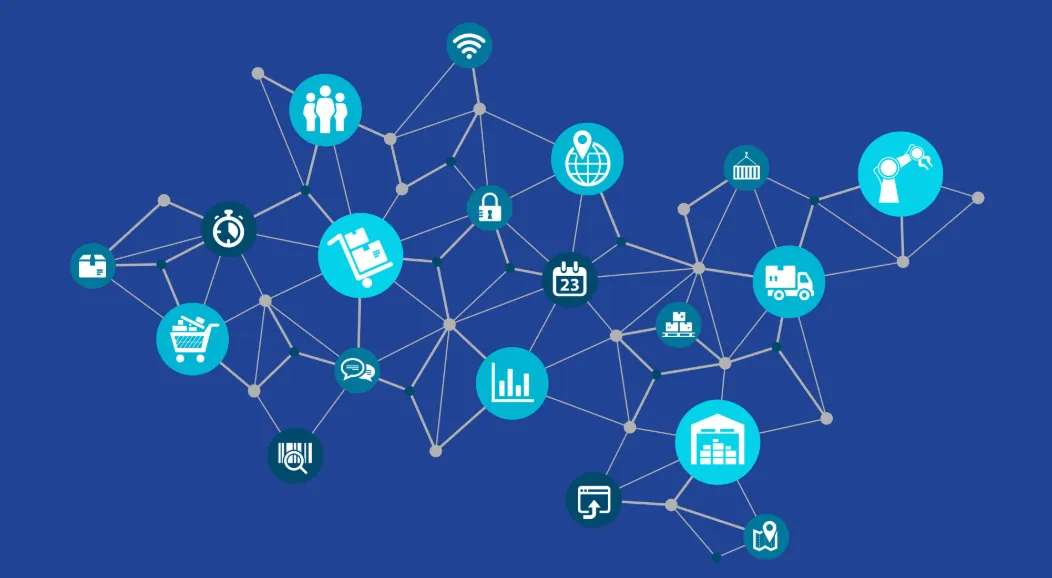The Role of TON in Supply Chain Management: Transparency and Security
Introduction
Today’s supply chains are complex networks involving multiple participants: manufacturers, transportation companies, distributors, logistics centers, and retailers. In this environment, maintaining data transparency and security is a priority. Information reliability, trust between parties, and the ability to respond quickly to change are essential for these networks to function effectively.
However, traditional supply chain management systems face many challenges. These include lack of a single database, low automation, human error and vulnerabilities related to document forgery. All of these challenges increase costs, reduce process efficiency and undermine trust.
Blockchain technology, especially in the form of TON solutions, offers a dramatic improvement in the approach to supply chain management. TON provides immutability of data, transparency of transactions and a high degree of fraud protection, making it a revolutionary tool for logistics and supply chain management.

The importance of transparency and security in modern supply chains
Transparency as the foundation of trust
One of the biggest challenges in supply chains is a lack of process transparency. This can include hidden stages in the handling of goods, discrepancies between stated product characteristics and actual ones, or delays due to lack of timely information. Transparency helps remove these barriers by providing access to data about every step of the chain.
TON provides a platform to create a complete transaction log available to all participants. TON for supply chain management minimizes conflicts and creates a trusted environment where everyone knows that data is accurate and immutable.
Challenges of traditional supply chain management
Systems that utilize paper documents or separate digital databases are often prone to errors. Examples include lost documents, difficulty in verifying information, and a high level of reliance on human error. These problems are particularly acute in international logistics, where supply chains can span dozens of countries and hundreds of counterparties.
The TON solution offers a single source of truth for all participants. With blockchain traceability, every transaction is captured and available for verification, eliminating the possibility of duplicate or corrupted data.
How TON improves supply chains
Traceability: Real-time tracking of goods and services
With TON, companies can track the movement of goods throughout the supply chain in real time. Each transaction is recorded on the blockchain, creating a complete and immutable history.
An example is the use of the technology in the pharmaceutical industry. Tracking a shipment of medicines can ensure that they have gone through all stages of temperature-controlled storage and have not been tampered with. Thus, blockchain traceability is becoming a critical tool for industries where consumer safety is crucial.
Data Integrity: Preventing fraud and ensuring accuracy
In traditional supply chains, transaction and product data can be altered or tampered with. This creates a risk of fraud and deteriorates relationships between participants. TON solves this problem through the immutability of records.
For example, when shipping high-value goods such as electronics or jewelry, the TON system can record every stage of the shipment. This eliminates the possibility of product substitution or document manipulation, ensuring security and transparency.
Security benefits
Alterable Records: How Blockchain Prevents Data Tampering
A major threat in supply chains is tampering with records. This can include altering data about the quality of goods, date of production or transportation conditions. By utilizing TON, companies have a tool that eliminates such manipulation.
The technology ensures that once information is added to the blockchain, it is immutable. This makes TON for supply chain management particularly useful for quality control, compliance and regulatory requirements.
Access control: Secure data exchange between participants
In supply chains, it is important that participants have access to only the information they need to do their jobs. TON provides the ability to customize access rights for each participant.
For example, a manufacturer can share delivery route data with a transportation company, while keeping the commercial terms of the contract confidential. This approach increases operational efficiency while protecting sensitive data.

Use cases
Logistics companies: Examples of efficiency gains with TON
TON is already being used by logistics companies to optimize processes. An example is the integration of blockchain into warehouse and transportation management. This automates operations, reduces costs and increases transparency.
Case studies in logistics demonstrate how the use of TON can speed up order processing and improve control over cargo flow. For example, international carriers reported a 30% reduction in errors after implementing a blockchain system.
Retail and Manufacturing: Increasing Supply Chain Transparency
In retail and manufacturing, transparency plays an important role in building trust with customers. TON allows consumers to know the origin of products, which becomes an important competitive advantage.
For example, with the help of TON, retailers can offer customers information about the origin of food products, growing and production conditions. Such projects have already received positive feedback from consumers, contributing to the development of sustainable consumption.
Conclusions
The future of supply chain management with TON technology
TON opens new horizons for supply chain management by offering solutions that both increase security and transparency and reduce costs. By integrating TON into logistics processes, companies have a tool that enables them to ensure a high degree of trust and minimize risk.
Blockchain traceability is becoming a standard in modern supply chains, and TON is leading the way. In the future, the use of blockchain technology will enable more sustainable and secure management systems that meet the demands of modern business and society.
TON not only helps solve existing problems, but also shapes new approaches to the interaction of supply chain participants, ensuring long-term benefits for all parties.